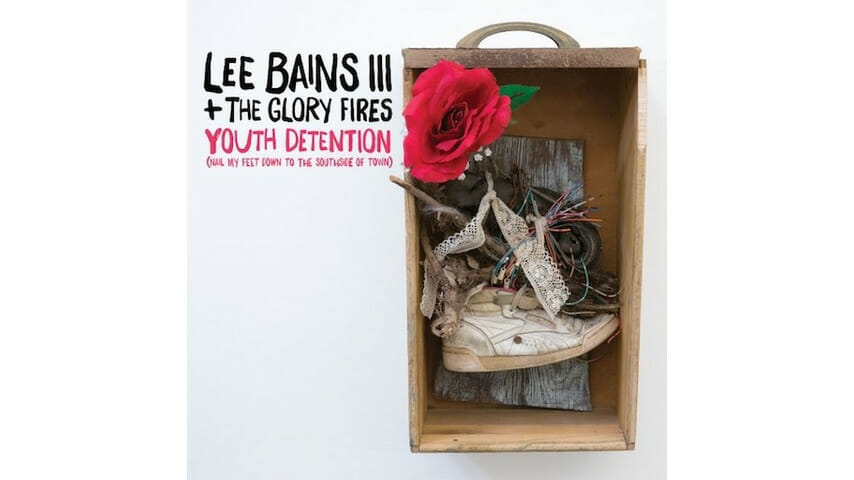
Lee Bains III + The Glory Fires deliver a verbose musical assault flush with punk insurgence and righteous indignation. With the exception of only a small handful of songs (out of 17 overall), Youth Identification surges like a veritable call to arms; a driving, deliberative battle cry that rails against the decay of cultural institutions, racial disparity, the marginalization of minorities and the upheaval of tradition, tolerance and common core beliefs.
“I don’t want to be a whitewash, I don’t want to be an absence, I don’t want to be the great silence,” Bains insists on “Whitewash,” one of several songs that run down a list of litanies berating the status quo. The tone and tenacity are high pitched throughout, with songs such as “Breaking It Down!,” “Sweet Disorder!” and “I Can Change!” leading the charge and taking to the trenches, their exclamation putting emphasis on the indignities.
The immediate target of the general disdain springs from Bains’ southern upbringing, in Birmingham Alabama specifically. It’s there, in the midst of the city’s decay and darker recesses, that Bains find echoes of past wounds and the scars of bigotry and injustice that forever marked the city as a ground zero in the fight against racism and persecution. In song after song, Bains rails with anthemic fury, painting a dire description of life in an abyss.
“Bend my back into it… watch my hair grow long and tangle up in the smoke still rising from the attacks” he moans explicitly on “Nail My Feet Down to the Southside of Town.” “Encase my tongue in steel, in case I ever dare to say, ‘I’m Stuck.’”
In a sense, Bains’ outrage and dissatisfaction could be fomented anywhere on the planet these days, given the general disillusionment in all corners of the world and particularly here at home. While the band’s nihilistic approach takes a knowing stance, in a sense the music also echoes the fury and frenzy of the Clash, whose sense of dissatisfaction with the tattered recesses of Thatcherite England amplified the greater concerns of punk protest on a universal scale. Likewise, the driving resolve of songs such as “Commencement Address for the Deindustrialized Dispersion” and “Whitewash” offer Springsteen-like rallying cries, further examples of the band’s appeal to the masses, complete with fist pumping, slogan-sharing wallops and wails.
“Don’t you tell me, ‘It’s only rock ‘n’ roll,’ when I’ve seen it wrestle truths for noise,” Bains insists on the album’s passionate coda, “Save My Life!.” A summation of all the reasons why music is so effective in championing change, the song provides that mandatory exclamation mark to a message that couldn’t be clearer, more compelling or explicitly more concise.